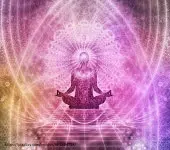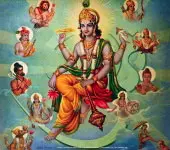Comments
Read more comments
Why You Should Listen to Bhagavata And Not Read
In all three—Karma Marga, Jnana Marga, and Bhakti Marga—listening is important, not reading. All karmas, the Karmakanda, are mentioned in the Vedas. The procedures and mantras of all yajnas are given in the Vedas. Even for those not mentioned in the Vedas, the Vedas are the basis. Vedas are always taught orally, never by reading out of a book.
The guru chants, and the shishya repeats after him, not with the help of books. In traditional gurukulas, you won’t even find books, strictly speaking. Sometimes, they use books only for reference, not for teaching.
In the Jnana Marga, the Upanishad says: listen first, then meditate upon it, then remember it again and again. The first step is listening. Here also, not reading. Listening is more powerful. You know that. Listen to a song and then read the lyrics of the song—are they the same? When someone speaks, his or her bhava also gets conveyed to the listener. This is not there in reading.
A good speaker can bring interest to the listener, encourage the listener, and motivate the listener. The first Soota, Romaharshana or Lomaharshana, got this name because, upon listening to him, the audience used to get goosebumps—'Loma Harshana' or 'Roma Harshana.'
In the Bhakti Marga, Bhagavan says:
मद्गुणश्रुतिमात्रेण मयि सर्वगुहाशये
मनोगतिरविच्छिन्ना यथा गङ्गाम्भसोऽम्बुधौ
Only upon hearing about my glory, the mind of the listener starts flowing towards me, like how Ganga flows towards the ocean. This is natural. Here also, it is Shruti—listening—not Pathana, reading.
The experience of reading and the experience of listening are completely different. The best and easiest way to bring the Lord to your heart is through listening—listening to his stories, listening to his glory.
Narada Bhakti Sutra also says:
लोकेऽपि गुणश्रवण कीर्तनात्
Listen to his glory from others; tell about his glory to others.
Everybody has got adhikara to listen to stories. Don’t think adhikara is a right; adhikara is more of eligibility. For example, after learning Veda, you get adhikara to learn Vedangas like Jyotisha, Kalpa, and Nirukta. Otherwise, you will not know what this is all about.
In the case of stories, everyone has got adhikara—even sanyasis. Most things are forbidden for sanyasis, but they can listen to katha, and they do this. Even jeevan muktas listen to the glory of the Lord:
मुक्त अपि लीलया विग्रहं कृत्वा भजन्ते
Listen to the glory of the Lord, a little bit every day. It will transform your life. Your life will change completely. Your problems will get sorted out on their own.
The Lord has blessed us with so much. Today, you don’t have to go anywhere looking for katha. To listen to katha, they come to you—on your mobile phone, on your devices, on your PC. They come looking for you. Listen a little bit every day. Allow the divinity to get into you and take roots in your heart. All your problems will go away. Peace and happiness will come into your life.
Knowledge Bank
Which are the three kinds of desires permitted in dharma?
1. Lokeshana - desire to attain a divine world such as Swarga or Vaikuntha 2. Putreshana - desire to have progeny 3. Vitteshana - desire for wealth to fulfill your duties as a householder.
What are the Vedic scriptures?
Vedic scriptures comprise of 1. Veda Samhitas 2. Brahmanas 3. Aranyakas 4. Upanishads.
Where to start reading Hindu scriptures?
In the Puranas and Itihasas, Vedic teachings are explained through historical incidents that are easily understood. It is here that you should begin reading Hindu scriptures.
How many holy books are there in Hinduism?
1. Four Veda Samhitas along with Brahmanas, Aranyakas and Upanishads 2. Smritis 3. Itihasas 4. Puranas 5. Darshanas 6. Ancillary texts - Vedangas, Dharma sutras, Nibandha granthas
Who started the Bhakti movement in South India?
Bhakti movement in South India was started by Vaishnavite saints called Alwars and Shaivaite Saints called Nayanars.
Which are the eight kinds of wealth?
Padma, Mahapadma, Makara, Kacchapa, Kumuda, Sankha, Nila, and Nandana.
Who is the Lord of treasures?
Kubera
Which were the three incarnations of Jaya-Vijaya on earth?
1. Hiranyakasha-Hiranyakashipu 2. Ravana-Kumbhakarna 3. Shishupala-Dantavakra.
Who were Shishupala and Dantavakra?
Shishupala was the king of Chedi. Dantavakra was the king of Karusha. They were incarnations of Jaya-Vijaya on earth towards the end of Dwapara yuga. Both were killed by Sri Krishna.
Who is Goddess Aditi?
Aditi was one of Daksha Prajapati's daughters. Kashyapa Prajapati was her husband. The twelve Adityas are her sons. Mahavishnu also took avatara as her son - Vamana. Devaki, Krishna's mother, was an incarnation of Aditi.
How was Sage Parashara born?
Parashara's father was Shakti and his mother was Adrishyanti. Shakti was Vasishta's son. In the ongoing tussle between Vasishta and Viswamitra, once Viswamitra made a king called Kalmashapada possessed with a demon. Then Kalmashapada devoured all the hundred sons of Vasishta including Shakti. At that time Adrishyanti was already pregnant. She delivered Parashara at the ashram of Vasishta.
How is listening important in Karma-marga?
Karma-marga is based on the Vedas. Vedas are always taught orally, by listening. Books are not used for teaching Vedas.
How is listening important in Jnana-marga?
In Jnana-marga the principle is श्रोतव्यो. मन्तव्यो निदिध्यासितव्यः - listen first, then meditate upon it, then remember it again and again. Stress is on listening not reading.
How is listening important in Bhakti-marga?
Bhakti-marga is centered around listening to the greatness of Bhagavan, not anything else.
Transcript
(Click here to read more)
In all three: Karma-marga, Jnana-marga, and Bhakti-marga, listening is important; not reading. All karmas, the karmakanda is mentioned in the Vedas. The procedures and mantras of all yajnas are given in the Vedas. Even for those not mentioned in the Vedas, Vedas are the basis. Vedas are always taught orally, never reading out of a book. The guru chants and the shishya repeats after him. Not with the help of books, In traditional gurukulas, you won’t even find books, strictly speaking.....
Transcript
(Click here)
In all three: Karma-marga, Jnana-marga, and Bhakti-marga, listening is important; not reading.
All karmas, the karmakanda is mentioned in the Vedas.
The procedures and mantras of all yajnas are given in the Vedas.
Even for those not mentioned in the Vedas, Vedas are the basis.
Vedas are always taught orally, never reading out of a book.
The guru chants and the shishya repeats after him.
Not with the help of books,
In traditional gurukulas, you won’t even find books, strictly speaking.
Sometimes they use books only for reference.
Not for teaching.
In the Jnana-marga also Upanishad says- listen first, then meditate upon it, then remember it again and again.
First step: listen, here also, not reading
Listening is more powerful, you know that.
Listen to a song, read the lyrics of the song, are they the same?
When someone speaks, his or her bhava also gets into it.
Bhava is also conveyed to the listener.
This is not there in reading.
A good speaker can bring interest in the listener, encourage the listener, motivate the listener.
The first Suta, Romaharshana or Lomaharshana got this name because upon listening to him, the audience used to get goosebumps: loma-harshana or roma-harshana.
In the bhakti-marga also Bhagawan says-
मद्गुणश्रुतिमात्रेण मयि सर्वगुहाशये।
मनोगतिरविच्छिन्ना यथा गङ्गाम्भसोऽम्बुधौ।
Only upon hearing about my glory, the mind of the listener starts flowing towards me like how Ganga flows towards the ocean, naturally.
This is natural.
Here also it is shruthi (listening), मद्गुणश्रुतिमात्रेण, not pathana (reading).
The experience of reading and the experience of listening, they are completely different.
The best and easiest way to bring the Lord to your heart is through listening; through the ears, listening to his stories, listening to his glory.
Narada-bhakti-sutra also says:
लोकेऽपि गुणश्रवणकीर्तनात्।
Listen about his glory from others, tell about his glory to others.
Everybody has got adhikara to listen to stories.
Don’t think adhikara means right, adhikara means eligibility.
For example, after learning Veda, you get adhikara to learn Vedangas like Jyotisha, Kalpa, Nirukta.
Otherwise, you will not know what this is all about.
In the case of stories, everyone has got adhikara.
Even sanyasis, most of the things are forbidden for sanyasis.
But they can listen to katha and they do this.
Even jeevan-muktas listen to the glory of the Lord.
मुक्त अपि लीलया विग्रहं कृत्वा भजन्ते।
Listen to the glory of the Lord, a little bit every day.
It will transform your life.
Your life will change completely.
Your problems will get sorted out on their own.
The Lord has blessed us with so much.
Today, you don’t have to go anywhere looking for katha, to listen to katha.
They come to you.
On your mobile phone, on your devices, on your PC.
They come looking for you,
Allow the divinity to get into you and take roots in your heart.
All your problems will go away.
Peace and happiness will come into your life.
Recommended for you
Durga Sapta Shlokee- the most powerful and complete Durga meditation

Why and how Sri Hari lifted up Mount Gowardhana

Shiv Aarti

jaya shiva onkaaraa, bhaja hara shiva onkaaraa, brahmaa vishnu sadaashiva ardhaangee dhaaraa.jaya shiva onkaaraa, bhaja hara shiva onkaaraa, brahmaa v....
Click here to know more..